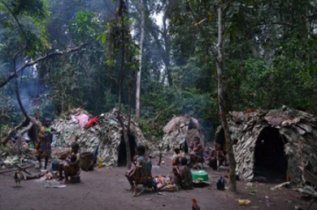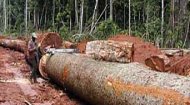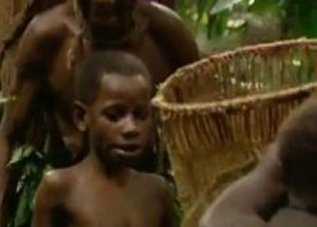|

Congo PygmiesOther illnesses are brought into the forest by loggers as they have contact with the Pygmy people for the first time. These loggers also introduce the indigenous forest people to other substances such as tobacco and stronger drugs.
Efforts to improve their circumstances are hampered not least because many of the children have difficulty in attending schools as birth certificates are required for school enrolment in most the countries where the Pygmy people live. Few have such documents as their very lifestyle is outside of such societal norms. As such, despite education being compulsory, just over one in three indigenous children between the ages of 12-15 attend school compared with a national average of 61% in the Republic of Congo. The government there launched an action plan in 2009 to help these children, however the challenges faced are reflected in the targets set to be achieved by 2013; 50% of indigenous children receiving education, 60% having access to HIV/AIDS prevention and health care services, and 90% being registered with the state. This page shows photos and pictures of the Pygmy people together with videos discussing the many challenges they face in the encroaching modern world and a video taken in colonial times about the Pygmy way of life.
|
|
|




 The situation in the Republic of Congo demonstrates some of the
difficulties meeting the needs of the pygmy people in the modern world, a
world in which, according to one pygmy man "We are completely neglected
and forgotten. Even our wives do not have access to midwives. They are
permanently exposed to death because of lack of care during their pregnancy
and deliveries. This came with the so-called modern life into which we were
dragged. It did not exist when we were living in our natural environment. We
had so many plants for such problems."
The situation in the Republic of Congo demonstrates some of the
difficulties meeting the needs of the pygmy people in the modern world, a
world in which, according to one pygmy man "We are completely neglected
and forgotten. Even our wives do not have access to midwives. They are
permanently exposed to death because of lack of care during their pregnancy
and deliveries. This came with the so-called modern life into which we were
dragged. It did not exist when we were living in our natural environment. We
had so many plants for such problems."



